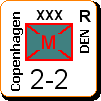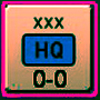JeffroK
Posts: 6391
Joined: 1/26/2005
Status: offline

|
quote:
ORIGINAL: michaelbaldur
quote:
ORIGINAL: JeffK
quote:
ORIGINAL: michaelbaldur
quote:
ORIGINAL: michaelbaldur
quote:
ORIGINAL: michaelbaldur
1. im the smallest army
2. but the highest decorated
3. I only numbered 28 soldiers
the answer was army of tonga ..
but cant confirm my information ..
And its absolutly wrong.
The NZ Army helped train 2 units or about 2000 men in WW2.
About 200 men served in Iraq attached to 1st US Marine Div, a smaller number served in Afghanistan. Peacekeepers have been based in the Solomons.
I dont know what Q2 refers to.
those 2000 was home defence units .. more or less home guard ..
there were a "army" units that fought with the new zealands 3. division on new Georgia and vella lavella ..
some kind of south sea scouts.
I hope you never call a Tongan Soldier a "Home Guard"
Was the Danish Army a "Home Defense Unit, cant rate as a Home Guard as they didnt succeed at that.
What about your "Most highly decorated army" question.
From http://www.nzetc.org/tm/scholarly/tei-WH2Paci-_N89307.html#n292
By that time negotiations with South Pacific Command had resolved themselves into New Zealand's acceptance of the defence of Tonga by the formation of 16 Brigade Group, using 6 Battalion, Canterbury Regiment, to replace 34 Battalion, and two battalions of Tongans, as well as New Zealand officers and non-commissioned officers for the artillery units and headquarters
16 brigade Group was
6 Battalion, Canterbury Regiment
1 Battalion, Tongan Defence Force
2 Battalion, Tongan Defence Force
The strength in armament contrasted impressively with the few rifles and machine guns possessed by the original hastily trained units of 1939–40. Included in the brigade group were one heavy and one light anti-aircraft battery and two field batteries of 18-pounders, officers and NCOs for which, as well as for the two Tongan battalions, were provided by New Zealand. Six 6-inch naval guns emplaced by the Americans for coastal defence were page 298 also manned by New Zealanders, though as many Tongans as possible were trained for employment in all arms of the service. Newly recruited Tongans, necessary to maintain a steady stream of reinforcements and to provide sufficient manpower for the second battalion, were given three weeks' training at a recruit depot before being posted to units. Unlike the Fijians, the Tongans trained without the stimulus of prospective overseas service, though before the arrival of the brigade group 28 members of the Tongan Defence Force, led by Masefield, a splendid example of the young New Zealand officer working with native troops, served with the Fijian guerrillas who were attached to 14 US Corps in the Solomons. One of them gained the Military Medal and another the American Silver Star for their bravery in the jungle.
Although the Canterbury battalion was under strength, by may 1943 there were 2662 New Zealand officers and men in Tonga, including coastwatchers and attached troops. Three months later the battle situation in the Solomons changed so rapidly that a reduction in the Tongan garrison was warranted and was recommended by New Zealand. South Pacific Command agreed, and the brigade group was reduced from 1948 New Zealanders and 2224 Tongans to 1018 New Zealanders and 1554 Tongans. This was done in August. The next reduction came in October, by which time the Japanese had been pushed back to Bougainville so that any danger to Tonga, even from raiding parties, was remote.
< Message edited by JeffK -- 3/14/2012 3:44:19 AM >
_____________________________
Interdum feror cupidine partium magnarum Europae vincendarum
|
 Printable Version
Printable Version










 So at this time you have a 50-50 chance
So at this time you have a 50-50 chance 
 New Messages
New Messages No New Messages
No New Messages Hot Topic w/ New Messages
Hot Topic w/ New Messages Hot Topic w/o New Messages
Hot Topic w/o New Messages Locked w/ New Messages
Locked w/ New Messages Locked w/o New Messages
Locked w/o New Messages Post New Thread
Post New Thread